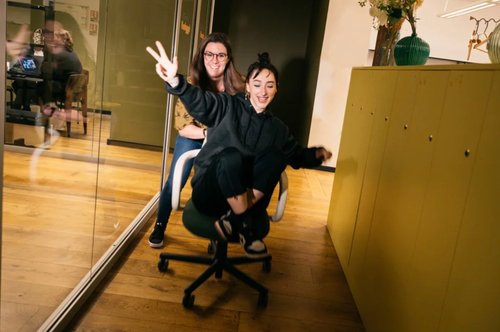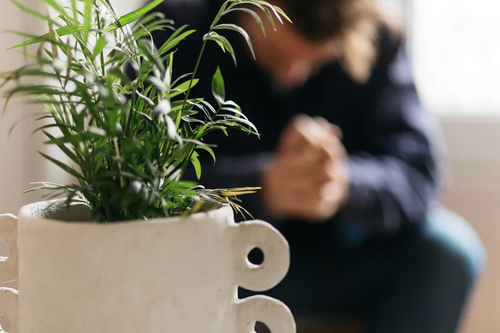The fear of going back to work
Aug 18, 2020
5 mins


Psychotherapist and writer
The Covid-19 lockdown led to sudden life changes as employees were asked to stay at home—and work or be furloughed if at all possible. It was the type of life leap that few would dare to make and yet we have largely adjusted. It has even led to surprising revelations about how different life can be. As workplaces start to reopen and we slowly return to “normal”, their employees are facing another major upheaval. What happens if you are wary about going back? Here we consider the reasons why you don’t want to return to the office—and how to ease your fears.
Change is challenging. It is easy to drift along in your comfort zone, feeling somewhat safe. Yet, conversely, humans have an inner drive that eventually kicks against unchanging routine. We are all destined to grow, as US psychotherapist Carl Rogers explains: “I realize that if I were stable, prudent, and static; I’d live in death. Therefore I accept confusion, uncertainty, fear, and emotional ups and downs; because that’s the price I’m willing to pay for a fluid, perplexed and exciting life.”
Yet change is hard, especially when it is foisted upon us and we feel we have no control over our lives. But what would also be challenging is if we knew our lives would be exactly the same from start to finish.
Alongside the major changes during the pandemic have come existential questions. Covid-19 has forced us to ask ourselves what we want to do in life. It has also made us face our mortality as well as the fear of losing loved ones. Going back to work kicks up all of this.
Fears around returning to the office
An existential moment
Some people have realized they prefer being at home doing hobbies, charity work, or spending more time with their kids. Having done this during the lockdown, they are reluctant to give it up and they want a better work/life balance. Going back to the office full-time means that they return to a life they are not sure they want anymore.
Feeling uncertain, confused, and questioning your future and your career are normal in these circumstances. Accept these fears, but if you are feeling absolute dread at going back, this could be telling you something. The timing isn’t perfect for job-hunting, but listen to your inner voice and think about changes in the longer term. This could also herald a positive change: even if you don’t want a career switch, you could plan a more balanced lifestyle.
What will the office be like now?
With all the talk of one-way systems, social distancing, and hygiene, the place you knew so well will be different. This can trigger our critical and anxious inner voices to come up with a whole panoply of concerns. Will the work be different? How will I fit in?
*Mark Thomas, a lawyer, admits that he was worried. “What if the work I did during lockdown wasn’t enough, even though I was in touch with the office all the way through? I was also worried about what the new layout would be like and if I would be sitting far away from my workmates,” he said.
Get as much information as you can from the company before you return to work and chat with colleagues for mutual support. Discuss career and work/life balance changes with friends and family, but remember the ultimate choice is yours.
Fear of infection
There have been varied responses to Covid-19: some people are pretty blasé about it while others are in fear for their lives and get angry at those who don’t seem to be taking the health threat seriously. At home, you have a lot of control over how you address the virus. In the office and on your commute—if you need to use public transport—that control loosens. You can hopefully trust your company to do the right thing, but you can’t control the attitudes and behavior of colleagues and commuters.
Regarding the commute, you can try to find other ways to travel, although that is not always possible. *Emily Hayes, a software developer, lives on the other side of London from her workplace. She has decided to cycle to work. “It is 13km each way and I am absolutely exhausted when I got home, but it does make me feel I’ve achieved something, doing that much exercise AND work,” she said. Hayes is back in the office three days a week but she’s not sure she could do the cycle commute full-time and clock up 130km a week.
Thomas, meanwhile, reluctantly went by Tube and was surprised at how empty it was. “There were probably 20 of us on the whole train at 8:30 AM. You could look down all of these empty carriages, it felt bizarre.”
In the workplace, if you feel a colleague is breaking the guidelines and you would prefer them to be more respectful, address your anger internally and ask yourself what is triggering your reaction. Instead of an outburst, try to have a reasoned conversation that does not involve personal attacks. Don’t come out with, “What do you think you are doing?” Say something factual and less heated, such as “We are different in how we are responding to the pandemic. I prefer to keep one meter apart.”
How to move forward
Be flexible
Humans are amazingly adaptable—look at what you’ve just gone through (although some will have suffered great losses and are living with sorrowful holes in their world). If you can be flexible it will stand you in good stead.
It is often thought that Charles Darwin’s “survival of the fittest” belief referred to the strongest people, but it is widely interpreted as being about adaptability. In 1963, at a convention of the Southwestern Social Science Association, Professor Leon C Megginson said: “It is not the strongest that survives; but the species that survives is the one that is able best to adapt and adjust to the changing environment in which it finds itself.”
Take your time
Returning to work is another disruption to your routine. You have no control over this decision, but you can take control of your well-being. Try to have a pleasurable day before going back to work—a walk in the woods, a bike ride, chilling with friends and family, painting or reading, whatever floats your boat—and aim for a chilled evening and a good night’s sleep (assuming you work day shifts!).
It is often best not to make snap decisions during a crisis. If you have the luxury of time, think about how you want your future to be and work towards that. Once out of the crisis, you may find that you think differently.
Think of the positives
It’s not all bad. Your workplace will need to follow safety guidelines, for the time being, most public transport is not heaving with commuters and you will get to reconnect with colleagues you like. Thomas even found that his perfunctory, task-driven boss was more congenial. “He was dressed in more casual clothes and walked around the office asking how we all were,” he said. “It felt more relaxed.”
Any fears about your ability to do the job are likely to be a momentarycrisis of confidence. Joanna Riley, a psychotherapist, worked with clients online during the lockdown. When she went back to face-to-face consultations, she became curiously anxious. “Even though I’ve been doing this for years, I felt so out of practice, but within minutes of being with my first client everything was fine.”
So listen to your fears and try to understand where they are coming from. Accept that others may think differently, give yourself time to address your concerns, and know that the reality may not live up to the worries.
*All names have been changed
Photo: Welcome to the Jungle
Follow Welcome to the Jungle on Facebook, LinkedIn, and Instagram, and subscribe to our newsletter to get our latest articles every day!

More inspiration: Manage your stress

Digital debt: when Slack and Zoom kill your productivity... and mental health
Notification overload isn't only a distraction disaster but can lead to severe stress, anxiety and even burnout
Jul 06, 2023

What is positive stress?
Stress boosts our focus, resilience and energy but can also burn us out. So when does one of our greatest assets become an enemy?
Jun 13, 2023

Surviving the startup jungle: thriving in a fast-paced work environment
As Mental Health Awareness Month comes to an end, we take a look at how to build resilience in a fast-paced environment.
May 29, 2023

When stress becomes your ally
Focus, problem solving and creativity are all products of positive stress. But how do you harness the power of adrenaline without its side effects?
Nov 14, 2022

Heads up, here’s how to deal with cognitive overload at work
Beware of mental overload at work! Find out how to maintain your cognitive balance in the era of open-plan offices and endless notifications.
Aug 23, 2022
The newsletter that does the job
Want to keep up with the latest articles? Twice a week you can receive stories, jobs, and tips in your inbox.

Looking for your next job?
Over 200,000 people have found a job with Welcome to the Jungle.
Explore jobs